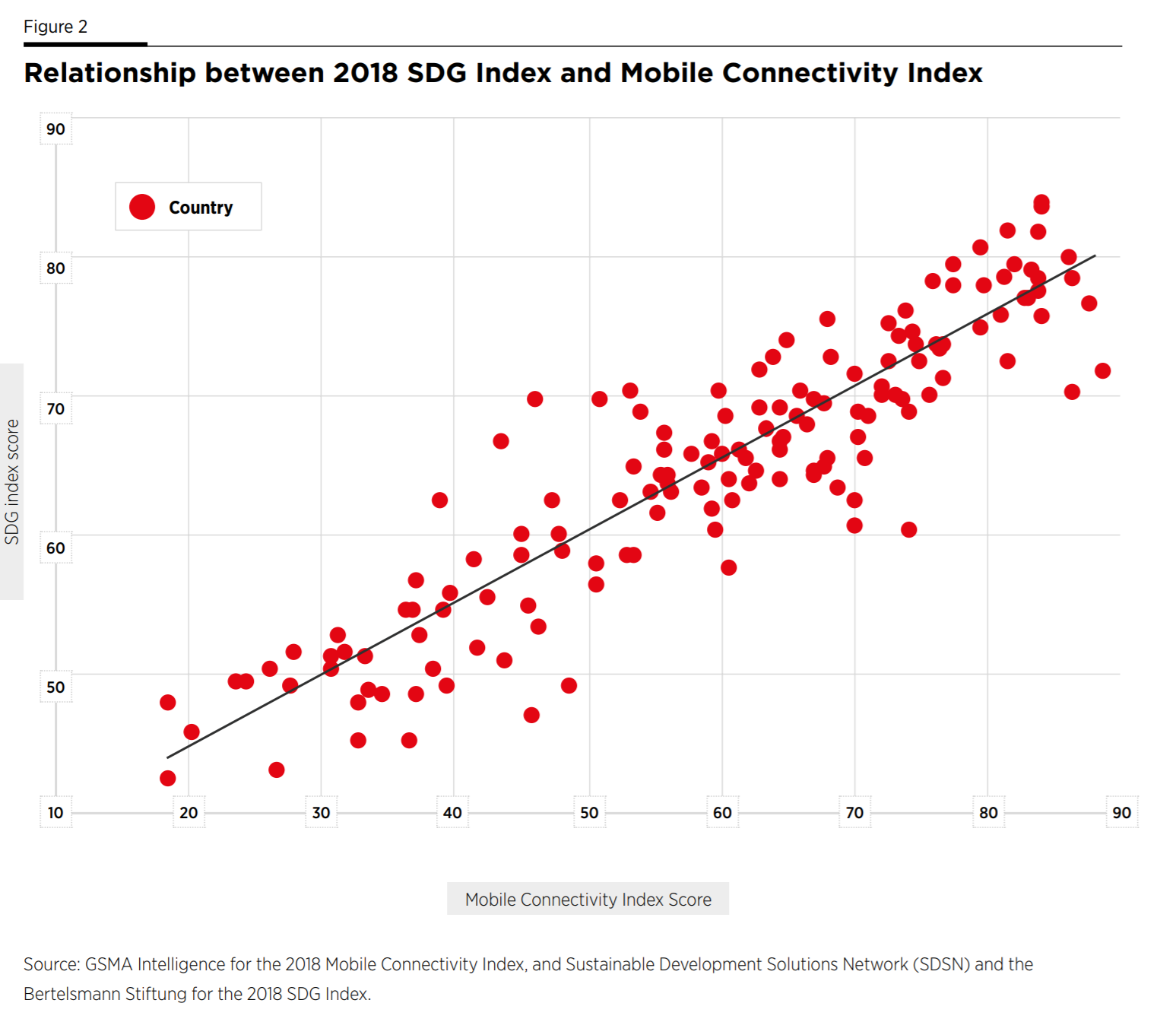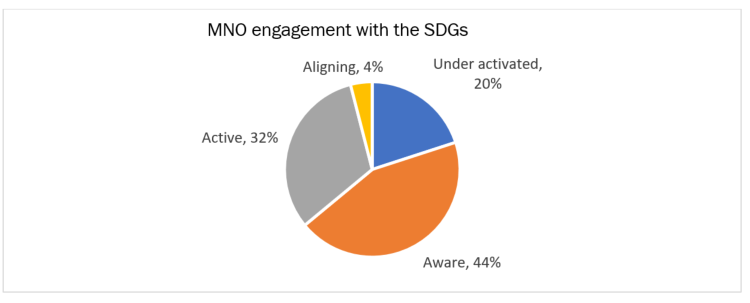Organisations with strong sustainability strategies are using the Sustainable Development Goals to sharpen their focus and clarify their contribution to tackling our biggest challenges
In September 2018, Oxfam published a discussion paper ‘Walking the Talk’, suggesting that while uptake of the Sustainable Development Goals (SDGs) by companies is high, there is less evidence of the SDGs changing companies’ sustainability strategies ‘with regards to priorities, ambition or transparency’ .
In the same month, GSMA published its third Mobile Industry Impact Report: Sustainable Development Goals. The report evaluated the mobile industry’s contribution to the SDGs to date and concluded that the mobile industry’s impact has increased across all 17 SDGs; with countries with higher levels of mobile connectivity making most progress in meeting their SDG commitments;

By adequately leveraging the power of mobile networks and the services they provide; the mobile industry will continue to play a central role in accelerating achievement of the SDGs.
This suggests that the industry is turning its commitment into action and driving tangible results and impacts on lives.
So, what is the truth for the mobile industry? How are Mobile Network Operators (MNOs) engaging with the Sustainable Development Goals? Are MNOs delivering the changes needed to achieve improved social and environmental outcomes for society?
Evaluating Engagement
A Sustainability Assessment Framework, developed by GSMA and Yale University Center for Business and Environment, looks at MNO engagement with the SDGs along a spectrum of ‘awareness’, ‘mapping their activities’ and ‘explicitly creating products and processes to align with the SDGs. It intends to help create a better picture at the sector-wide level of the impact MNOs are having on social and environmental sustainability, including the SDGs. In addition to enabling comparisons against peers, it also offers operators examples of best practice and a roadmap to address material social and environmental issues that they might face.
The research looks at companies’ public sustainability disclosures for 2017 and indicates that 80% of MNOs evaluated reference the SDGs in some way. A third of companies, 32%, have mapped their activities against the SDGs in their reporting.
In 2017 Deutsche Telekom reported an ‘enablement effect’ for the SDGs its business activities lay the foundation for contributions to – such as network infrastructure or products and services. It also provided an overview of its contribution to the SDGs and refers to specific examples from the current CR report. Finally, it also reported how its KPI system can be applied to the SDGs.
KPN has focused on the three goals where it can have the most impact and that align with its strategic direction relating to network development, Smart Cities and waste reduction.
However, fewer organisations are describing how they are creating products and processes explicitly to align with the SDGs, therefore offering future opportunities for companies to talk more about how the goals are driving growth for their businesses.
The results of the research are available in full here.

The framework found that mobile operators have taken the SDGs on board in their sustainability disclosures and that MNOs scored most highly in Delivering Value to Society of all three Pillars examined, demonstrating that aligning business operations with social value is an area of strength for the sector.
Where companies already have a strong sustainability programme in place, this strategy will be underpinning business priorities to tackle the most pressing material issues. The SDGs then provide another means to understand the scale of the biggest challenges that exist, serving as targets for companies to align themselves with when examining their own activities and goal priorities.
How are companies using the goals?
Articulating social value creation is not an easy task; many companies have been grappling with it for years. However, the transformative power of mobile to empower communities and economies can be seen in the findings of the recent Mobile Industry Impact Report. The Sustainability Assessment Framework provides individual operators with an opportunity to assess not only the performance of their own operations, but also their interaction with society and their leadership on these global challenges and opportunities.
The full report ‘Incorporating Sustainability and the SDGs Into Core Business’ can be found here.
The GSMA’s third ‘Mobile Industry Impact Report: Sustainable Development Goals’ can be seen in full here.
For more information on the Sustainability Assessment Framework please contact [email protected]
